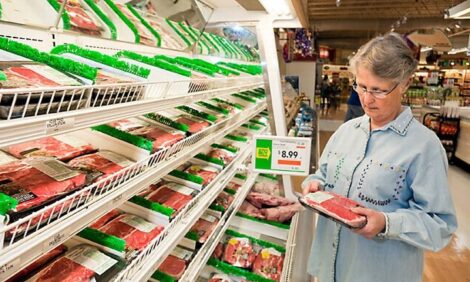



Most piglets don't die from infectious diarrhoea, they die from dehydration
A Veterinarian with Goshen Ridge Veterinary Services says pork producers can speed up the recovery of piglets affected by diarrhoea by rehydrating and replacing the body salts they are losing.Most causes of diarrhoea in piglets are infectious but Dr Sue Burlatschenko, a Veterinarian with Goshen Ridge Veterinary Services, told those on hand last month for the 2019 London Swine Conference that death is often a result of dehydration not the actual infection.
"When we look at piglets with diarrohea we tend to think it's an organism and I must treat that but what we tend to forget is what's happening during the course of the diarrhoea," says Dr Burlatschenko.
"These piglets are actually losing body salts like sodium, potassium, bicarbonates and it's really affecting their ability to function normally.
"Although one reaches for an antibiotic, say if it's an E. coli and we think if we treat them they'll get better, we can hasten recovery and improve the quality of piglet by replacing those salts that they're losing.
"That's pretty straight forward. They've been around for a long time. With my producers I often advocate for the use of electrolyte replacement solutions. That usually comes as a concentrate in a jug that you dilute out or you can buy a powdered solution.
"I also encourage you to examine the packaging if you have some there. There are two sets of electrolytes: there's a stress electrolyte that is used for animals that have been shipped and they are coming into the barn, which we often use to help them adjust to the barn. Those are not the ones you want to use.
"You want to use what we call replacement electrolytes and those are specifically designed for animals that are having diarrhoea episodes."
Dr Burlatschenko says that in instances where replacement electrolytes are not immediately available, calf replacement electrolytes will work or producers can use can use a World Health Organisation recipe which includes one litre of water, eight teaspoons of sugar, one teaspoon of table salt and, if desired, flavouring such as Kool-Aid.








